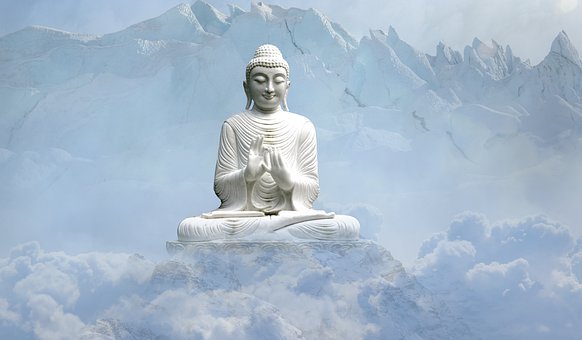Christ and the Incarnation at the Basis of Dostoyevsky’s Philosophical and Religious Thought
Fyodor Mikhailovich Dostoyevsky (1821-1881) is considered a true giant of Russian literature. Even today his work – “Crime and Punishment” (1866) or “The Idiot” (1868-1869) or “The Brothers Karamazov” (1880) – continues to captivate. Especially for his conception of religion. Dostoyevsky was very Christian, recalls Marguerite Souchon, associate professor of Russian in the preparatory class, author of “The God of Dostoyevsky” (ed. First Part, 2021). But more than religion, God or the Church, it was the person of Christ who fascinated him. Christ, that is to say God made man: the incarnation is at the foundation of his philosophical and religious thought.
Dostoyevsky’s Christ is strongly associated with Russia and the future of his country. “He believed very strongly in the Russian soul, says Marguerite Souchon, he was convinced that the Russians had a separate being, a separate spirituality.” In the writer’s conception, “the Russian man was the only one capable of leading humanity on the path of truth and redemption, which was to be Christian…”
Dostoyevsky against socialism, seen as Christianity without Christ
In 19th century Russia, Fyodor Mikhailovich Dostoyevsky (1821-1881) went on a crusade against the materialism, nihilism and atheism of his contemporaries. Fighting against a conception of the world where the human being is relieved of responsibility for everything since he is determined by his environment. If indeed man is not responsible for his actions, he is not free… Dostoyevsky never ceases to question original sin and guilt in his work. He considers that if we wear evil, we are irresistibly attracted to beauty and good. And that we must consider our incompleteness and the fragment of the divine that we lack, in order to accept the salvation offered by Christ.
In “The Grand Inquisitor” famous passage from the “Brothers Karamazov” (1880), Dostoyevsky tells a parable set in 16th century Spain, where an old bishop sees Christ returning and disrupting everything that had been organized. Put in prison, he is condemned to death by the Grand Inquisitor, who pronounces an indictment against Christ. The Grand Inquisitor finds that what Christ asks of men is too harsh. What he stands for is Christianity without Christ. A religion which cares about the material happiness of humanity but which deprives men of their ideal and of the freedom to tend towards this ideal. This passage, a real metaphor for socialism, represents for Marguerite Souchon, “the philosophical crowning achievement of Dostoevsky’s work”.
“Beauty will save the world”
Who hasn’t heard the famous phrase: “Beauty will save the world”? It is taken from “The Idiot” (1868-1869), one of the novels by Fyodor Mikhaïlovitch Dostoïevski (1821-1881). In reality, in the novel, it is formulated in the form of a question. He is a rebellious young nihilist who aggressively asks the hero of the story, Prince Myshkin (an avatar of Christ): “Is it true, prince, that you once said that ‘beauty’ would save the world?” In Dostoevsky’s thought, “beauty is apocalypse in the proper sense of the term”, the author of “Dostoevsky’s God” tells us. That is to say, it is “revelation, unveiling of the truth”. A beauty associated with Christ, because for the great Russian writer, only Christ is perfectly beautiful.
The great idea of Fiodor Mikhailovich Dostoyevsky (1821-1881) is that man contains in power what God is capable of. Duality runs through her work, recalls Marguerite Souchon: duality between faith and atheism, the dirty and the pure, the passionate and the rational, good and evil, the celestial and the terrestrial… Her novels reflect the germinates evil in man and his ability to do good. There is in “The Brothers Karamazov” (1880) a very beautiful passage on prayer, this communion between men on earth and those who are in heaven. “And then God will look upon you both with more mercy; for the moment you have pitied him so much, how much He will pity him, Him whose mercy and love are infinitely greater than yours. And He will forgive for the love of you.”

